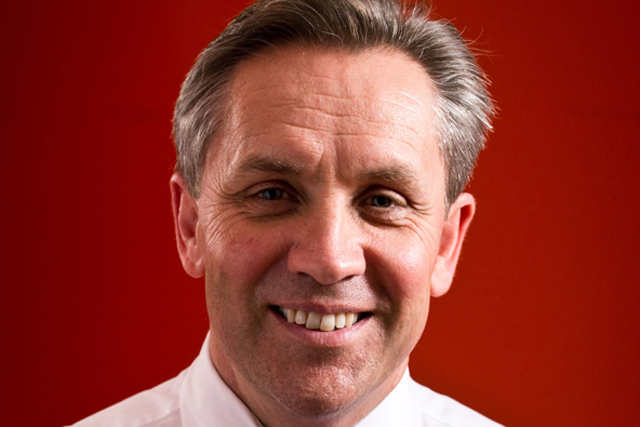I’m a competitive soul. I was brought up in a family of boys and my earliest memories are of competing, trying to run the fastest or throw a ball the furthest. I think this is one of the reasons I enjoy retail in particular; it’s an incredibly measurable environment. You can tell whether you’re winning or losing.
I’ve definitely got the energy to do another big job
Never mind the doubters. There’s a good bit of me that likes going against the grain and proving doubters wrong. When I took this job, a number of people said to me: "Oh god, why would you take that? The business is in terrible trouble. Why would you want that sort of challenge?" To me, the very fact that people were asking that question was the answer in itself. That was the reason I wanted the job. For many people, that could be quite fearful. I like uncertainty, unpredictability.
Communication is your key. The people who understand what you are trying to achieve, why you’re trying to achieve it and the context of why it’s the right thing for the organisation will generally do their jobs better than otherwise. However, that begs the obvious question: do you have something worth communicating?
Know what success and failure looks like. You need to be clear about what your plans are, and your expectations of other people within that. Whether it’s the immediate members of your leadership team or the 157,000 people who work in the business, you need to give them the space to do a great job. It’s my fundamental belief that people come to work wanting to do a great job. And it’s the job of great leaders to provide a clarity about what’s expected, the space to do it, and in a collegiate way.
There’s a good bit of me that likes going against the grain and proving doubters wrong. The very fact that people were asking why I would take the job was the answer in itself. That was why I wanted it.
Take the right risks. Talking about taking risks makes you sound as if you are cavalier in some way. But, by definition, if you are prepared to put yourself in places where others do not believe what you’re trying to achieve is possible, then you must have a high risk threshold. Some considered our [sponsorship of the London 2012] Paralympics to be a risky decision. What could possibly be risky about taking a brand whose very essence is that it’s inclusive and understands the customer it serves, then wrapping it around an event that is very special to so many of our customers? That just didn’t feel like a very big risk.
Find inspiration on the shop floor. I’ve never understood this idea of being "just a shelf-stacker". Nothing can be further from the truth. Whatever job people are doing in Sainsbury’s they are part of the machine, which is delivering something very worthwhile. [Our] people have embraced Sport Relief so enthusiastically because the company they are working for is giving them the opportunity to express themselves and make a difference in their community. That makes them very proud of the company they work for – and that reflects in the service they give customers. For me, being at the coalface, in stores talking to customers, talking to colleagues, that is always where you find your inspiration.
Your success will be judged beyond your tenure. There are many great years ahead for the company. It is knowing when the time is right [to leave], for you and for the company, that the transition is right for everyone and making sure that the company doesn’t miss a beat.
Of course I am disappointed [about leaving after Sainsbury’s posted its first fall in like-for-like sales – in the 10 weeks to 15 March – after 36 consecutive quarters of growth]. But we have held market share in that period.
I’d love to be able to say that [it was all growth], but I would be pretty shallow to line up my departure to suit that. I am very confident about the company’s future and happy to be judged on its long-term success. Ultimately that’s what counts.
I do feel I can do another big job. I’m very open. After July, I might take a break, by which I mean a few weeks. I was very fortunate to have become chief executive in my early 40s, and I have outlasted the average CEO by a factor of two. I’ve definitely got the energy to do another big job. As I said, what motivates me is trying something different.


